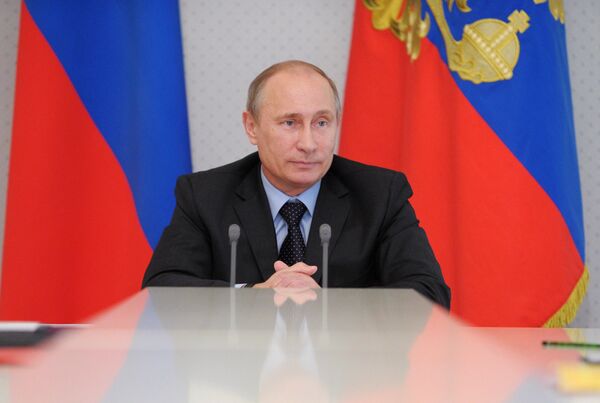BOCHAROV RUCHEI (Sochi), May 16 (RIA Novosti) - Russian President Vladimir Putin said on Wednesday that the majority of Russian regions is likely to choose their leaders by direct popular vote.
The return of direct gubernatorial elections, scrapped in 2005, was signed into law last year in the aftermath of a wave of anti-Kremlin protests. Earlier this year, Putin signed another law, allowing regions to opt out of direct polls and instead choose their governors from a list of three candidates approved by the president.
“I expect, with good reason, that most regions will choose the current system of direct vote by citizens,” Putin said at Wednesday’s meeting with factions from the lower house of the Russian parliament, the State Duma.
Two North Caucasus republics, Dagestan and Ingushetia, have already made use of the law to scrap gubernatorial elections.
“At the same time, I think that we should respect regional particularities, especially in the ethnic-based republics, where several titular ethnic groups are represented and live together. We are to take their specific situations into consideration,” the Russian president said.
“If regions make use of these possibilities, the regional heads chosen through these procedures will have all the same rights and responsibilities of course, and we - myself included - will treat them as equal in every way in their office as heads of their regions,” he went on.
Putin also welcomed a bill introducing a mixed electoral system by making half of the State Duma’s 450 seats subject to direct elections rather than party votes. The bill was adopted in the first reading in mid-April.
“I hope that the introduction of single-mandate districts will help to make government and its representatives more accountable to their own voters, will strengthen government at the local level, and bring interesting new people and leaders into politics. I know that the draft law is due for its second reading soon,” Putin said.
Under the current system, State Duma seats are awarded on the basis of the percentage of election votes won by a party. The party then appoints candidates to fill its eligible seats.
The bill, if approved, puts only half of the Duma’s seats up to party voting. The other half will consist of individual candidates, elected in a direct popular vote in their constituencies.


